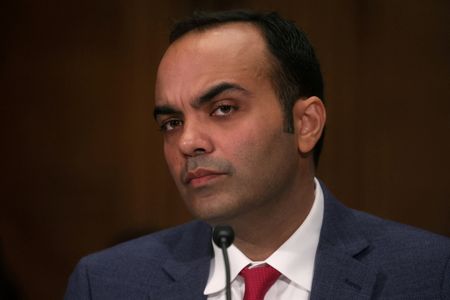By Michelle Price
WASHINGTON (Reuters) – The federal U.S. consumer finance watchdog on Wednesday proposed a new rule cracking down on fees that banks charge consumers when they do not have sufficient funds to cover a purchase or transaction in real time.
The proposed Consumer Financial Protection Bureau (CFPB) rule is part of a broader crackdown by the administration of President Joe Biden on so-called “junk fees” a range of companies charge consumers, and comes as banks are already fighting the consumer watchdog over other proposed fee curbs.
CFPB research suggests banks and credit card companies charge over $14 billion annually in punitive fees, while bank revenue from overdraft and non-sufficient funds (NSF) fees surpassed $15 billion in 2019. The industry has disputed the CFPB’s data.
Wednesday’s proposed rule would prohibit NSF fees on transactions such as declined debit card purchases and ATM withdrawals, as well as some declined peer-to-peer payments, the agency said.
“Over the years, large banks … have concocted new junk fees for fake services that cost almost nothing to deliver,” said CFPB Director Rohit Chopra.
“Banks should be competing to provide better products at lower costs, not innovating to impose extra fees for no value.”
The CFPB this month proposed curbs on overdraft fees, and last year proposed clamping down on credit card late fees, sparking fierce opposition from lenders who say they are offering customers a valuable source of credit. Many have already reduced or eliminated NSF and other types of fees.
(Reporting by Michelle Price; Editing by Chizu Nomiyama and Jonathan Oatis)

